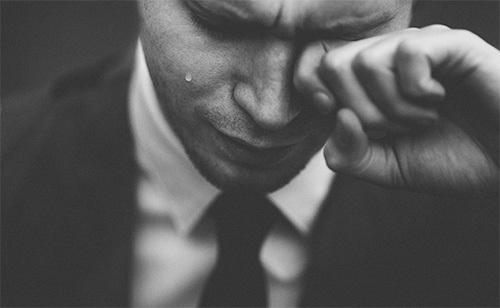There is a staggering fact about alcohol addiction. Often the compulsion not only affects the person who has the illness, but it also affects loved ones. At least one out of eight children in the United States is a child of a parent who is dealing with alcoholism. It is a documented scientific fact that children of alcoholic parents and guardians are at risk of abuse, neglect, even addiction.
They are significantly more prone to mental illness and social disorders as well as victims of sexual and physical abuse from family and friends. There is considerable stress within their households and paradigms that attributes to many inhibitors to social acceptance. Many of these children will grow up without proper intervention and have poor communication skills.
They look at alcoholism as a rational occurrence, and their permissiveness leads to undersocialized development, neglect, alienation, and they are desensitized to violence. Often children of alcoholics suffer alone. They are silent about problems at home, unidentified as victims, and go unassisted. Often their inability to cope socially will lead to altercations with law enforcement. They view any form of authority as the enemy and will lash out at people attempting to help. Many children who live in a household where alcoholism is an everyday occurrence do not see the problem as an inhibitor.
Many children are victimized by their parents without knowing they are victims. To these children, a quarrel, argument, and sometimes physical abuse are a way of life. They do not learn the ability to ask for help, and they are perpetually angry and irritable. The inconsistency in their everyday lives leaves them socially unprepared for life events, and they tend to lash out uncontrollably.
When these children grow up and become adult children of alcoholics, they continue to live in a perpetual denial because they have been unable to get psychological help as adolescents. Often they bury their emotions; they suppress their anger and sadness. They are not able to comprehend how certain emotions should work internally, and they fear stigmas that should provide joy and happiness. Many of these people continue to fear people of authority. They do not understand how to take personal criticism and misinterpret assertiveness from others as a form of anger.
 They live a half-life where they subconsciously seek approval from others and have no real self-worth or personal identity. Many will grow up without the ability to have proper relationships and will isolate themselves. These adult children of alcoholics have incredibly low self-esteem, no self-body image, and are persuaded by others easily, respond to judgment negatively, and are compulsive. Their low self-esteem and hard self-criticism make it difficult for them to cope with rudimentary life skills. They live in denial and will not face their past; especially when they feel threatened. Many of these people will not be able to have steady relationships. They have difficulty with intimacy; have problems expressing their needs and love for others.
They live a half-life where they subconsciously seek approval from others and have no real self-worth or personal identity. Many will grow up without the ability to have proper relationships and will isolate themselves. These adult children of alcoholics have incredibly low self-esteem, no self-body image, and are persuaded by others easily, respond to judgment negatively, and are compulsive. Their low self-esteem and hard self-criticism make it difficult for them to cope with rudimentary life skills. They live in denial and will not face their past; especially when they feel threatened. Many of these people will not be able to have steady relationships. They have difficulty with intimacy; have problems expressing their needs and love for others.
Because of their fear of losing control, they often have problems with their sexuality. They go on to develop a victim mentality and will remain passive or be aggressive victims without the ability to filter between the two extremes. Since they have lived a certain lifestyle, they often gravitate to like-minded people and will fall into social circles or relationships that are codependent. Many of these adult children of alcoholics will have disorders. While they may be alcoholics themselves, there are other ways the disease manifests in them. Some of them will have eating disorders or have other addictions.
Because they lived early with inconsistency, they will have tendencies that allow them to dwell in confusion rather than order. They will often confuse love with pity and will look to have relationships with people they subconsciously believe can rescue them. Their unhealthy relationship choices will make them victims and they would rather stay in a negative environment than face abandonment, even if the relationship is violent. They are highly susceptible to illnesses and can experience uncontrollable anxiety attacks. Depression and self-degradation are commonplace with them.
 They can tolerate accumulated grief and abuse, both mental and psychical. They are hyper-vigilant of their surroundings and tend to be introverted, overreacting to outside stimulus. Their dysfunctional home life as children will flourish when they are adults. While they need counseling and professional treatment, especially when they missed it as children, they will not outwardly seek help.
They can tolerate accumulated grief and abuse, both mental and psychical. They are hyper-vigilant of their surroundings and tend to be introverted, overreacting to outside stimulus. Their dysfunctional home life as children will flourish when they are adults. While they need counseling and professional treatment, especially when they missed it as children, they will not outwardly seek help.
Often these people will go through life believing they have no self-worth, they do not have a self-identity they want to share and will not maintain relationships for any length of time unless it is with other adult children of alcoholics. The perpetuation of their lifestyles is not something they consciously seek. They do not have the ability to rationalize why other people are content and happy. They may covet what they see, but their upbringing denies them the inner strength to break through the barriers that trap them inside themselves. Parents of these adult children, if they survive their own illness, will continue to treat their offspring in a manner that is both neglectful and abusive. It is impossible for both the parent and the child to understand they are doing anything wrong.
While it is easier to help the children when they are young, often their home life and the conditioning that extends to their upbringing go unnoticed and untreated. We tend to shy away from people who are not of the same social status as us. It is a genetic trait that is undeniable. However, the next time we observe a person who fits the criteria of an adult child of alcoholism it would be a good idea to make an effort, bridge the gap, take a little time to get to know them. Be aware of their shortcomings and do not allow them to see you as the rescuer.
If you treat people with equality, without being judgmental, you are doing yourself and others considerable justice. A young man who died from an overdose once said, "We are taught to consume. And that's what we do. But if we realized that there really is no reason to consume, that it's just a mindset, that it's just an addiction, then we wouldn't be out there stepping on people's hands climbing the corporate ladder of success," River Phoenix.


 Ashlee Arnold is one of the founders of US Drug Test Centers and is currently the Vice President.
Ashlee Arnold is one of the founders of US Drug Test Centers and is currently the Vice President. 


